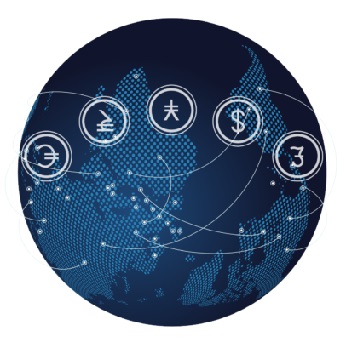A quick snapshot of banking and payment trends in Africa offers encouraging news for banks on the continent and opportunities for growth
Across Africa, all banking and payment channels are showing positive growth – from ATM usage through to mobile wallets. The key challenge for banks is to equip themselves so that they can provide a range of channel options and meet consumer demand.
A quick snapshot of banking and payment trends in Africa offers encouraging news for banks on the continent and opportunities for growth. Thanks to Africa’s diverse population – and with that a wide range of banking and payment needs – all means of payments have their place on the continent, including ATMs, point of sale, cards, digital wallets and mobile money. And across the board volumes are increasing.
Facts and figures
Africa has always been the global leader in mobile money uptake, and this has been further spurred on by the COVID-19 crisis. In 2020, the number of mobile money accounts in Africa passed the half a billion mark, and Africa alone accounted for more than 64% of the value of global mobile money transactions, totalling $767 billion. Looking to the future, there is no sign of this growth slowing.
That said, traditional banking and payment channels, like ATMs and POS also show an upward trend, highlighting the wide range of needs of the African population.
In Botswana, for example, both the volume and value of transactions at ATMs and POS show a steady increase year-on-year. In January to March 2018, the number of ATM transactions stood at 9.979 million rising to 15.241 million transactions in the first quarter of 2020. POS figures show similar growth, with 9.986 million transactions being recorded in the first quarter of 2018, rising to 15.423 million transactions in the first quarter of 2020.
In Kenya, one of the leading mobile money markets, ATM and POS transactions took a slight dip at the onset of the COVID-19 pandemic, but they have bounced back and continue to show an upward trend.
While card penetration in Africa lags behind the rest of the world, this too is showing growth. For example, the number of cards issued in Ghana rose by 11% year-on-year from 2018 to 2019, with the volume of transactions rising by 51%. But this growth occurred alongside a steep uptake in the volume of mobile money transactions (a year-on-year growth of 39%) highlighting consumers’ appetite for a variety of payment methods and channels.
This is a trend we see reflected across the continent and highlighted in a McKinsey study that includes the results from their Covid Africa Consumer Pulse Survey conducted in April last year, showing the likelihood of increased or decreased use of particular banking channels. Using Nigeria, Kenya, Nigeria and South Africa as examples, it predicts a significant growth in both online and mobile banking.
Understanding your customer
Acknowledging that Africa is not one market and is home to a population whose circumstances vary widely – rural and urban; high and low income; unbanked and underbanked – is key. Banks need to ensure that they reduce the barrier of entry for their customers – or potential customers – regardless of their location, income, or literacy level by offering a broad range of banking channels and instruments for payments.
Within the various markets, a number of market enablers and the interplay between them affect consumer uptake of different channels. These include regulatory requirements, existing card penetration and mobile penetration.
In countries like South Africa where traditional banking channels have an existing stronghold and card penetration is high, there are a low demand and uptake of digital wallet offerings, despite high mobile penetration.
In Nigeria, for example, slow adoption of regulatory and policy requirements stunted the mobile money market, while in Kenya, where the regulatory stance was more hands off, mobile money grew quickly and continues to rise.
In many countries, a change in government policies at the onset of the COVID-19 pandemic, when lockdowns were implemented and bank branches were closed, helped to spark a surge in digital banking, mobile money customers and transactions.
In Rwanda, the Central Bank introduced a variety of policy changes, including free transfers between bank accounts and mobile wallets; free mobile money transfers; zero merchant fees for mobile POS contactless transactions; and increased transfer limits. This resulted in a 450% increase in person-to-person payments; a 200% increase in the number of people using mobile payments; and a 700% increase in the weekly value of funds being spent digitally at merchants.
Access channels and reach are also essential considerations for banks, particularly as a driver for financial inclusion. For much of Africa’s rural population, the proximity of a banking service or payment channel determines their habits. For many, an agent will be their nearest financial service access channel, followed by POS, ATM, Post Office and then branch. The more significant the service offering, the further away it is. This again emphasises the need for banks to offer an array of channels.
The fact that a large portion of Africa’s population is underbanked or unbanked, also underlines the need for a full range of services, from basic cash in, cash out and person-to-person transfers through to more enhanced services, including electronic payments such as debit orders, insurance offerings, access to credit and customer loyalty programmes.
As banks try to move their customers up this ladder, self-service is seen as the ideal bridge between physical and digital channels. As many banks consider branch rationalisation, these self-service options preserve a human element in the banking experience, which is still a priority for many customers.
Absa Botswana has reaped the rewards of expanding its self-service offerings. The bank reported a 34% increase in digital banking services usage as it rolled out a variety of digital financial services offerings, in keeping with customer appetite for self-service banking options. This includes the launch of Digital Corners in its banking halls where customers can utilise a variety of services, from forex and bill payments to card management and transfers.
Ultimately, the challenge for banks is to understand their customer base and their differing circumstances and needs and to deliver an array of services to ensure financial inclusion and ultimately economic prosperity for the continent.










